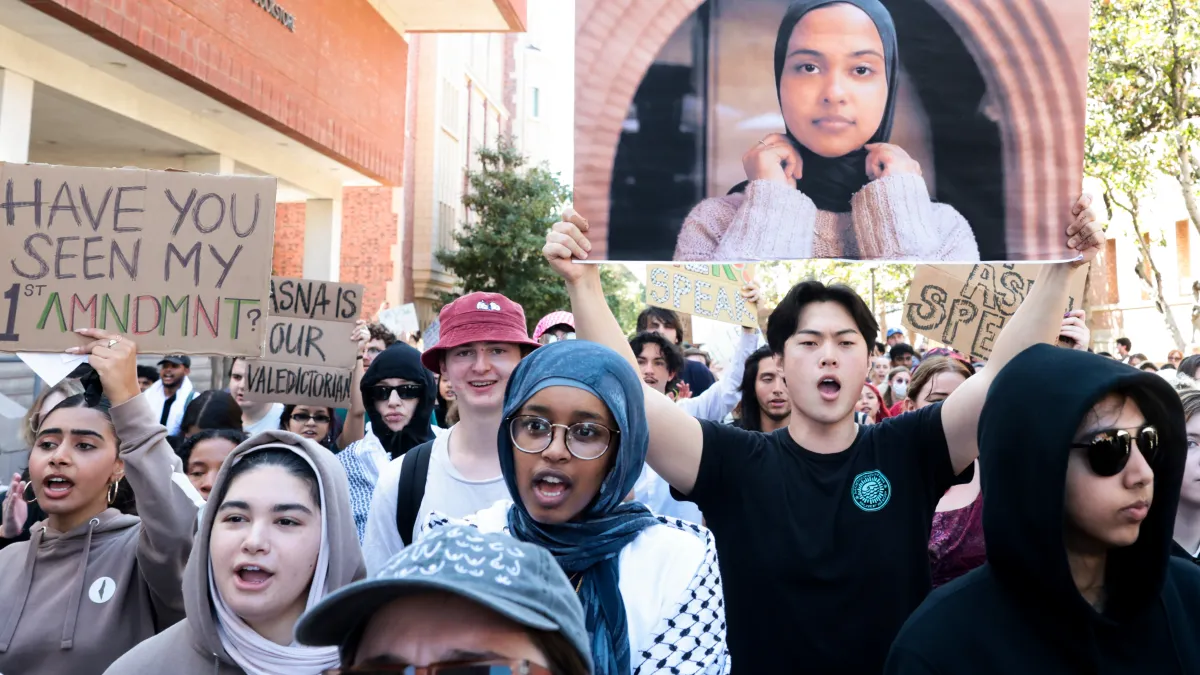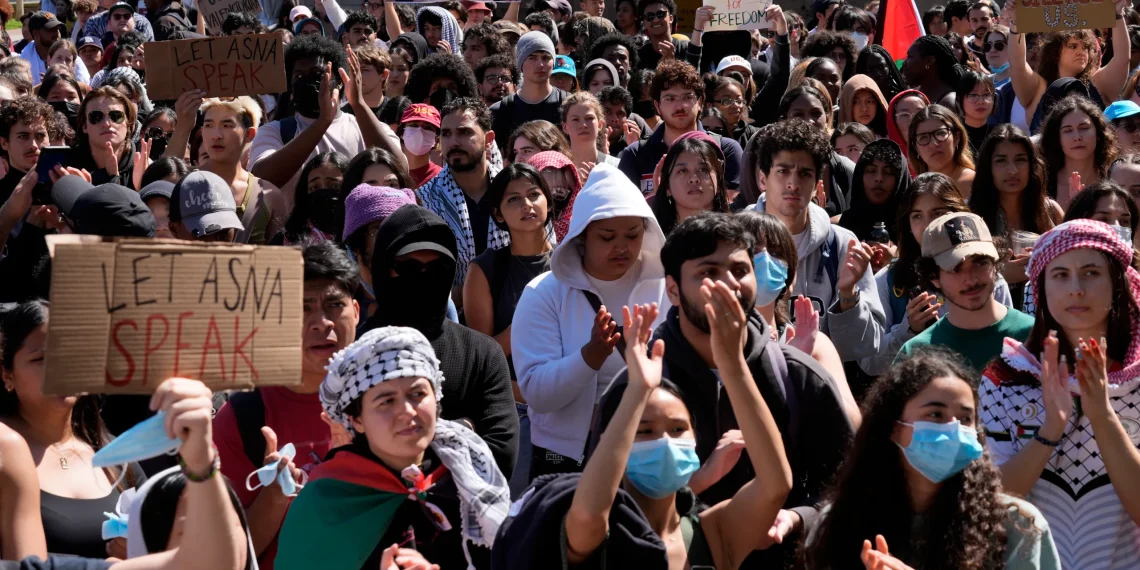The University of Southern California (USC) has stirred controversy by canceling outside speakers and honorees for its upcoming main commencement ceremony.
This decision came after the university revoked the valedictorian speech of Asna Tabassum, a Muslim student, citing concerns about campus security.
Tabassum accused USC of bowing to fear and rewarding hatred, alleging that anti-Muslim and anti-Palestinian sentiments influenced the decision.

Tensions have escalated on college campuses across the United States amidst the ongoing Israel-Gaza conflict.
At Columbia University, over 100 pro-Palestinian protesters were arrested as they demonstrated against Israel’s actions in Gaza. Hate and bias against Muslims, Arabs, and Jews have been on the rise.
Support for Tabassum has emerged from advocacy groups like the Council on American Islamic Relations and Jewish Voice for Peace.
However, USC-based groups, including Trojans for Israel and We Are Tov, have called for Tabassum’s removal, citing concerns over her alleged previous expressions of antisemitism.
The commencement ceremony, which honors over 19,000 graduates, was initially expected to host notable speakers like film director Jon M. Chu and tennis legend Billie Jean King. However, USC’s decision to cancel outside participation has stirred further controversy.
The cancellation reflects broader concerns about freedom of expression and the handling of sensitive issues on college campuses.

It also underscores the complexities of facing political tensions and ideological differences within academic institutions.
Amidst these challenges, USC faces scrutiny over its decision-making processes and commitment to fostering an inclusive and respectful environment for all students.
As the commencement date approaches, the university grapples with balancing security concerns with the principles of free speech and academic integrity.





